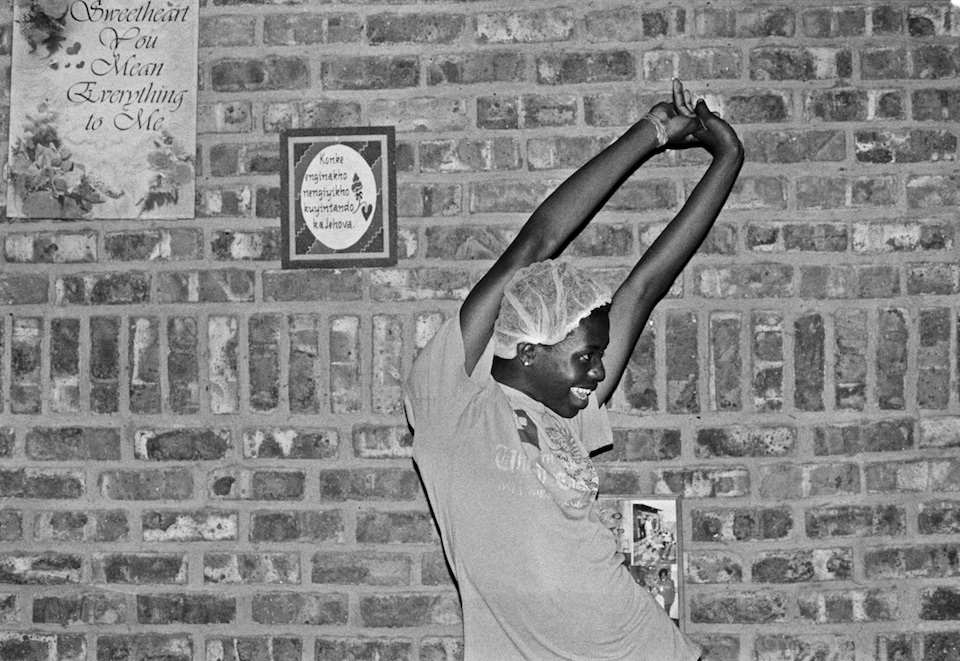Sabelo Mlangeni is a South African photographer who grew up in Mpumalanga. After having lived in Johannesburg for a number of years he returned to his home in 2003 where he worked on his series ‘Country Girls’ for six years. Sabelo’s imagery takes the viewer into a world that they might not have encountered before and shows with intimacy in a matter-of-fact way the lives of a small LGBTQ community.
Sabelo’s ‘Country Girls’ is set in townships of rural South Africa and has as its focal point the day-to-day lives of the region’s small queer communities. With the people he photographed radiating confidence and glamour, Sabelo opens up his own eye to his viewer and shows us images of men in wigs sticking out their hips, queer couples in each other’s loving embrace, and some people showcase their glamorous attire with poise. In these small communities drag queens, gay-friendly beauty pageant participants and queer couples have the freedom to be out in the open for the most part despite the fact that queerness is habitually considered to be “un-African” or “un-Christian” in certain spaces.

Sabelo’s use of black and white photography is what I find intriguing as it has come to my attention that photographing in black and white has the ability to bring another narrative to the foreground. The people he photographs appear happy and playful in comparison to some photographers who photograph LGBTQ communities with a hint of sadness or an extreme seriousness to the images and the subjects portrayed in them. Showing these communities in a positive light, the people photographed are brave and unapologetic about their sexual orientation.
Sabelo’s ‘Country Girls’ challenges common misconceptions of queerness and thrives upon the expression of a shared familiarity.


